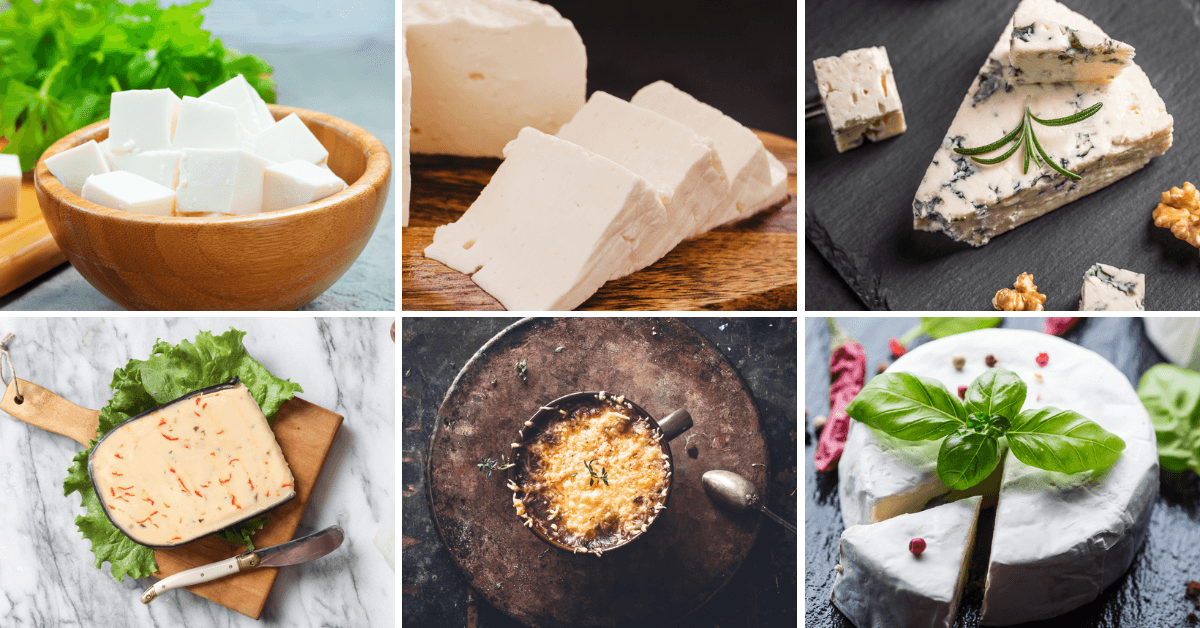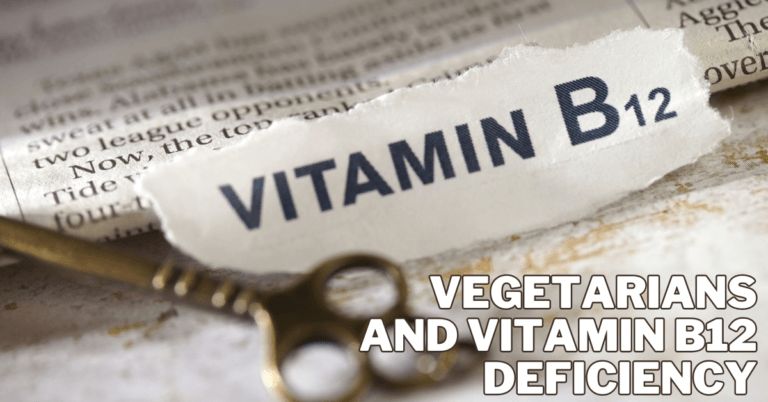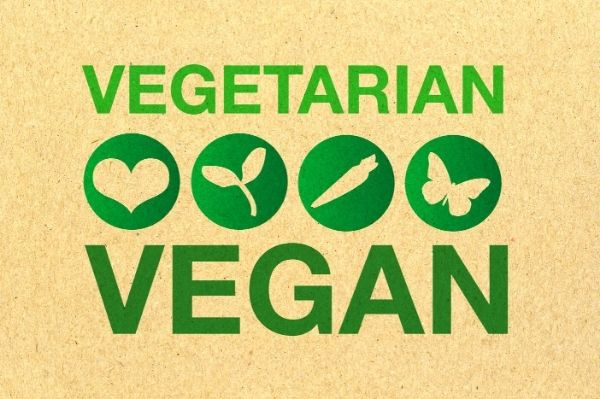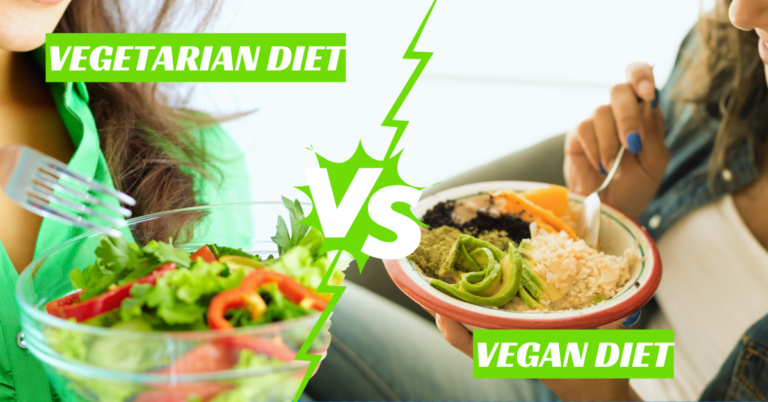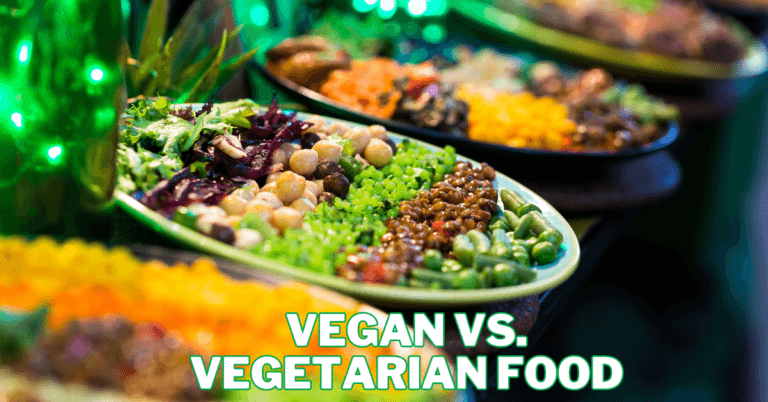What Cheese Can Vegetarians Eat
Have you ever wondered what cheese can vegetarians eat? Cheese is a popular and versatile food enjoyed around the world, but choosing the right option can be tricky for vegetarians.
Although many cheeses are made from milk, some use animal rennet during production. This makes them unsuitable for certain vegetarian diets and often leads to confusion when reading ingredient labels.
In this article, we explore what cheese can vegetarians eat, explain how to identify vegetarian-friendly cheeses, and highlight ingredients to watch for. You will also discover tasty alternatives that allow you to enjoy cheese without compromising your dietary choices.
Whether you are a vegetarian or simply curious about cheese options, this guide will help you make informed and confident decisions.
Can Vegetarians Eat Cheese?
Yes, vegetarians can eat cheese. Cheese is a dairy product made from milk, and it does not involve the slaughter of animals.
The cheese is made with vegetarian-friendly ingredients and does not contain animal-derived rennet, so it is suitable for vegetarians.
Animal rennet is an enzyme traditionally used in cheese-making that comes from the stomach lining of young animals.
However, many cheese producers now use microbial or vegetable-based rennet as an alternative, making the cheese vegetarian-friendly.
Various kinds of cheese are naturally suitable for vegetarians, as they are made with non-animal ingredients or no rennet.
Examples include Cheddar, Mozzarella, Brie, Gouda, Swiss, and Cottage cheese. Additionally, artisanal and specialty cheeses are crafted with vegetarian-friendly ingredients and rennet alternatives, offering even more choices for vegetarians.
Overall, vegetarians can enjoy a wide range of cheeses, provided they verify the cheese's ingredients and production methods to ensure it aligns with their dietary choices.
Cheese That Vegetarians Can Eat
Vegetarians can enjoy a wide variety of cheeses suitable for their dietary preferences. To ensure the cheese is vegetarian-friendly, look for options made without animal rennet.
Here are some types of cheese that vegetarians can eat:
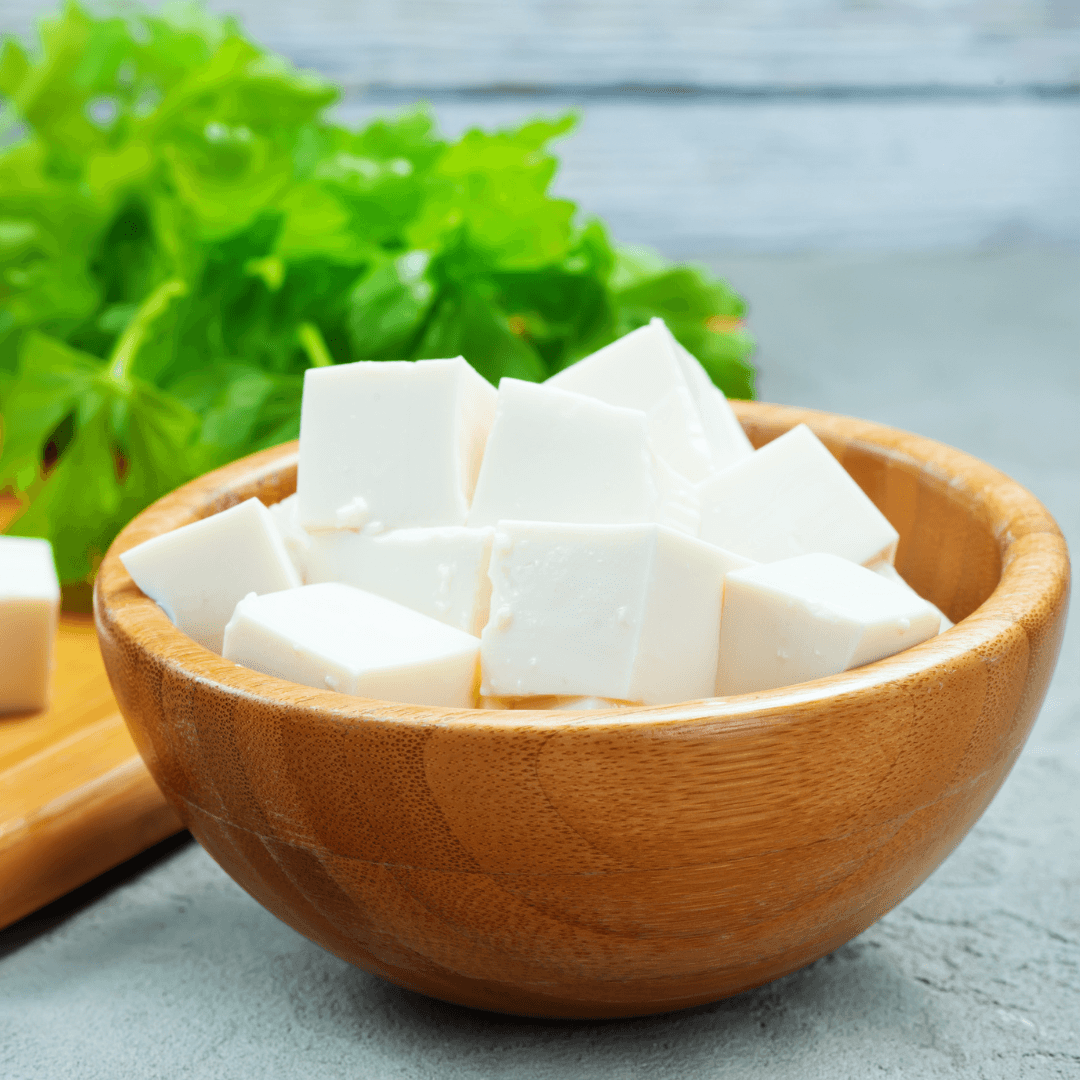
Vegetarian-Friendly Cheeses
Vegetarian-friendly cheeses encompass a delightful array of common varieties, offering a wide selection of flavourful options for those who adhere to a meat-free diet.
These cheeses are made without animal rennet, making them inherently suitable for vegetarians. With its sharp, nutty flavour, Cheddar is a beloved classic that graces countless sandwiches and dishes.
Mozzarella, the star of pizza and caprese salads, entices with its stretchy texture and mild flavour. Swiss cheese, renowned for its distinctive holes and sweet, nutty taste, is a staple in fondue and sandwiches.
Gouda's versatility shines through its buttery, slightly caramelized taste, making it a delightful addition to cheese boards and snacks.
Colby cheese boasts a mild and creamy profile, while Monterey Jack's buttery texture and subtle taste complement a wide range of culinary creations.
Using microbial or vegetable-based rennet instead of animal rennet ensures that these cheeses align with vegetarian dietary preferences without compromising taste and quality.
Manufacturers produce these cheeses by curdling milk using non-animal enzymes, making them suitable for vegetarians seeking delicious dairy delights.
Whether melted, grated, or enjoyed as standalone slices, these vegetarian-friendly cheeses add depth and richness to a range of dishes and culinary experiences.
With their versatility and wide availability, vegetarians and cheese enthusiasts continue to cherish these cheeses.
They provide a flavourful and satisfying choice for those looking to savour the world of cheese while honouring their dietary principles.
Want to Share Your Passion for Vegan Living?
Discover how easy and fulfilling vegan living can be —
from recipes and travel to lifestyle and sustainability tips.
Read this blog post next:
How to Start a Vegan Blog (and Turn Your Passion into Purpose).
1. Fresh Cheeses
Fresh cheeses offer a delectable array of creamy, delicate flavours, making them a delightful addition to a vegetarian's culinary repertoire.
Fresh cheeses are considered safe for vegetarians because they are typically made without rennet, the enzyme used to coagulate milk in traditional cheese-making.
Ricotta, a smooth and slightly sweet cheese, is crafted from the whey left over after making other cheeses, ensuring no rennet is involved in its production.
Cottage cheese, known for its curds and light tangy taste, is made by acidifying milk, bypassing the need for rennet.
With its luscious, spreadable texture, cream cheese relies on a simple acidification process, making it a safe, creamy choice for vegetarians.
Mascarpone, a luxurious Italian cheese with a velvety texture, is produced by curdling cream with citric or tartaric acid, avoiding the use of rennet.
These fresh cheeses lend themselves beautifully to sweet and savoury dishes, from delightful fillings in pastries and ravioli to adding rich creaminess to desserts and breakfast bowls.
For vegetarians seeking sumptuous, versatile cheese options, fresh cheeses offer an indulgent, satisfying choice. Their smooth and luxurious profiles elevate a range of culinary creations.
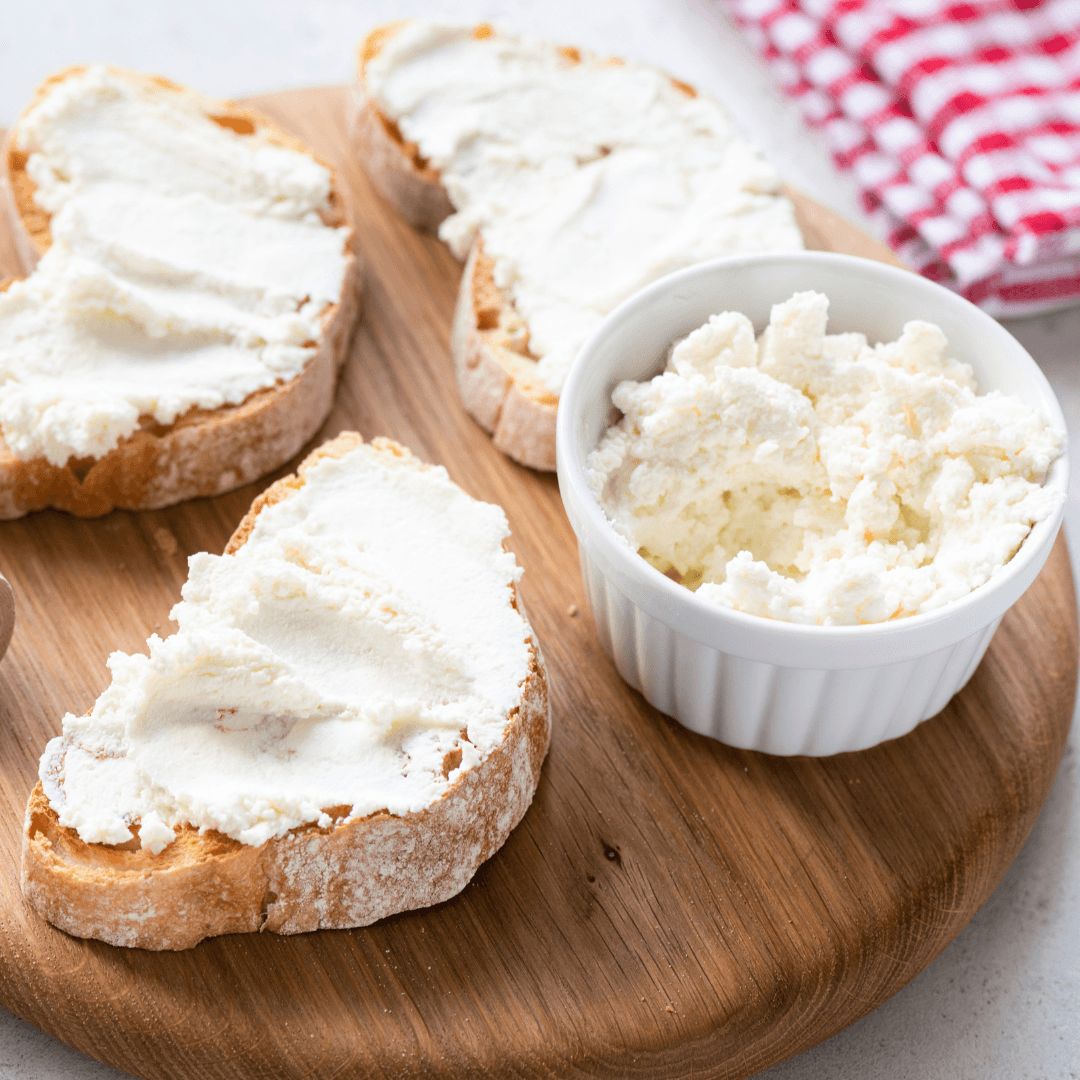
2. Paneer
Paneer, a beloved ingredient in Indian cuisine, holds a special place in the hearts of vegetarians. It is a rich and versatile addition to a wide array of dishes.
This fresh, non-melting cheese is a staple in traditional Indian cooking. It is made without animal rennet, making it ideal for vegetarians.
Milk is first heated and curdled using acidic agents like lemon juice or vinegar to produce paneer. The soft curds are drained and pressed into a firm, cohesive block.
The absence of rennet in the cheese-making process ensures that paneer remains fully vegetarian-friendly.
Renowned for its mild and creamy taste, paneer beautifully absorbs the flavours of spices and herbs, making it an excellent canvas for curries, gravies, and marinades.
Paneer's ability to retain its shape during cooking without melting or losing its structure adds a delightful textural contrast to Indian dishes.
Whether fried, grilled, or crumbled, paneer brings a delightful richness and depth to everything from popular classics like Palak Paneer and Paneer Tikka to innovative creations like Paneer Bhurji and Paneer Kebabs.
As a source of protein and calcium, paneer also provides valuable nutrients, making it a flavourful and nutritious choice for vegetarians seeking to explore the vibrant world of Indian cuisine.
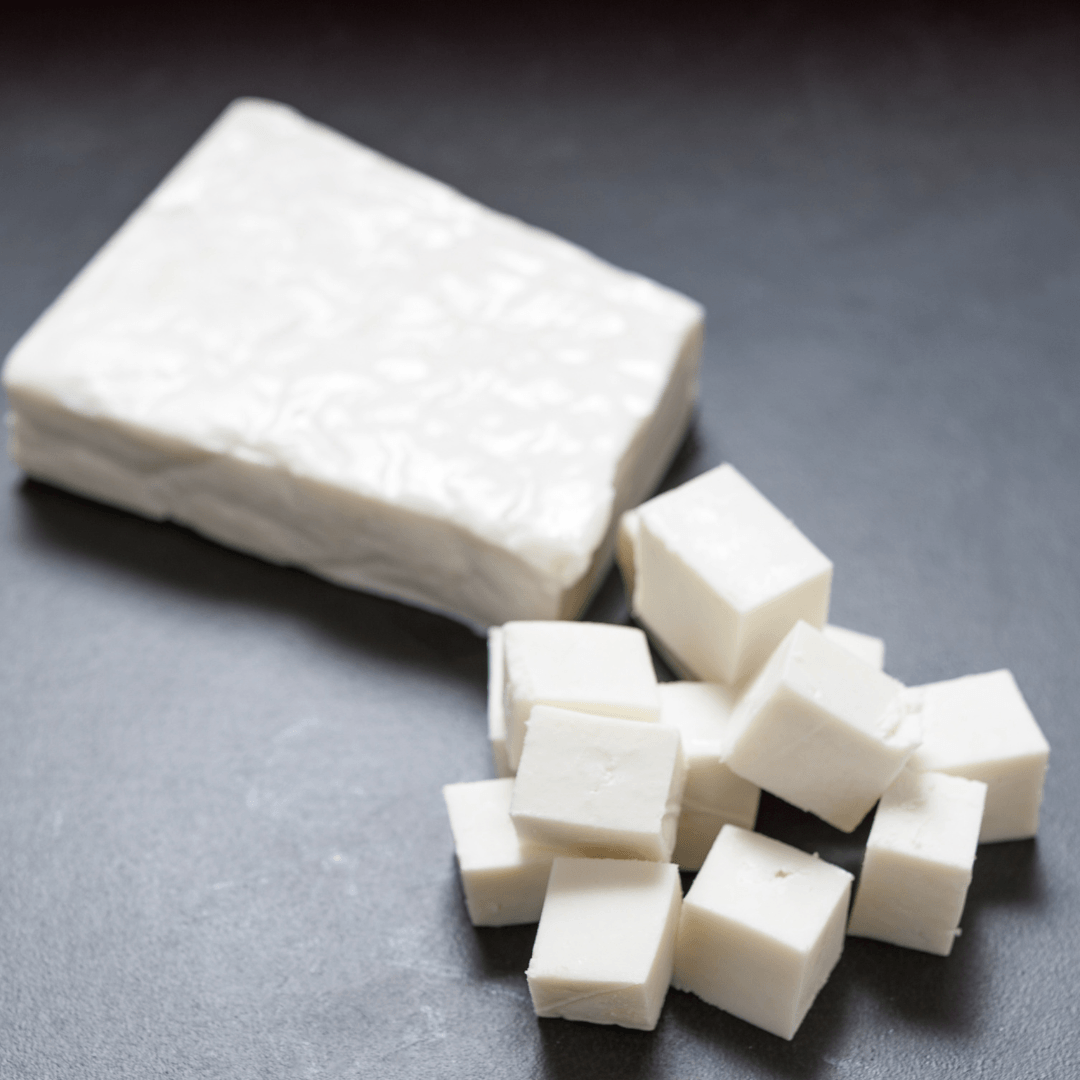
3. Artisanal And Specialty Cheeses
Artisanal and specialty cheeses open a world of unique and exciting flavours for vegetarian cheese enthusiasts.
Crafted with utmost care and expertise, these cheeses often showcase the creativity and passion of local producers and specialty cheese artisans.
What sets them apart is their dedication to using vegetarian-friendly ingredients and rennet alternatives, making them a perfect choice for those seeking ethically sourced cheese.
These small-scale producers take pride in selecting high-quality milk from local farms, ensuring a more sustainable and environmentally friendly approach to cheese-making.
Using microbial or vegetable-based rennet allows them to create distinctive and complex cheese varieties that cater to various tastes and preferences.
From tangy and aged goat cheese to herb-infused, soft cow's milk cheese, the artisanal and specialty cheese market offers a treasure trove of flavours to explore.
Cheese lovers can indulge in handcrafted delicacies that embrace tradition while pushing culinary boundaries.
As a bonus, supporting local producers fosters community and sustains small businesses committed to producing exceptional and ethically conscious cheese.
Whether enjoyed on a cheese board, paired with wine, or incorporated into gourmet dishes, these vegetarian-friendly artisanal cheeses promise an extraordinary gastronomic journey for all cheese connoisseurs.

4. Halloumi
Halloumi, a beloved cheese hailing from the Mediterranean island of Cyprus, captivates taste buds with its unique characteristics and versatility.
This semi-hard, brined cheese is a culinary gem cherished for its ability to retain shape and resist melting when exposed to high heat, making it an ideal choice for grilling or frying.
Traditionally crafted from a blend of goat's and sheep's milk, halloumi carries a distinctive tangy and salty flavour profile, complemented by a pleasingly chewy texture.
As a vegetarian-friendly cheese, halloumi is made without animal rennet, adhering to dietary preferences.
Its brining process lends it a delightful salty edge and a longer shelf life, making it a practical choice for storing and transporting.
Halloumi's grill-friendly nature allows it to develop a golden-brown crust and a delectably soft, slightly gooey interior, creating a delightful textural contrast that can elevate salads, sandwiches, and vegetable skewers.
Moreover, halloumi's unique taste and cooking versatility make it an excellent candidate for sweet and savoury applications, such as pairing with fresh fruits or drizzling with honey for a delightful dessert.
With its rich history and culinary adaptability, halloumi continues to captivate food enthusiasts worldwide. It offers a truly satisfying and indulgent experience for vegetarians and cheese lovers.
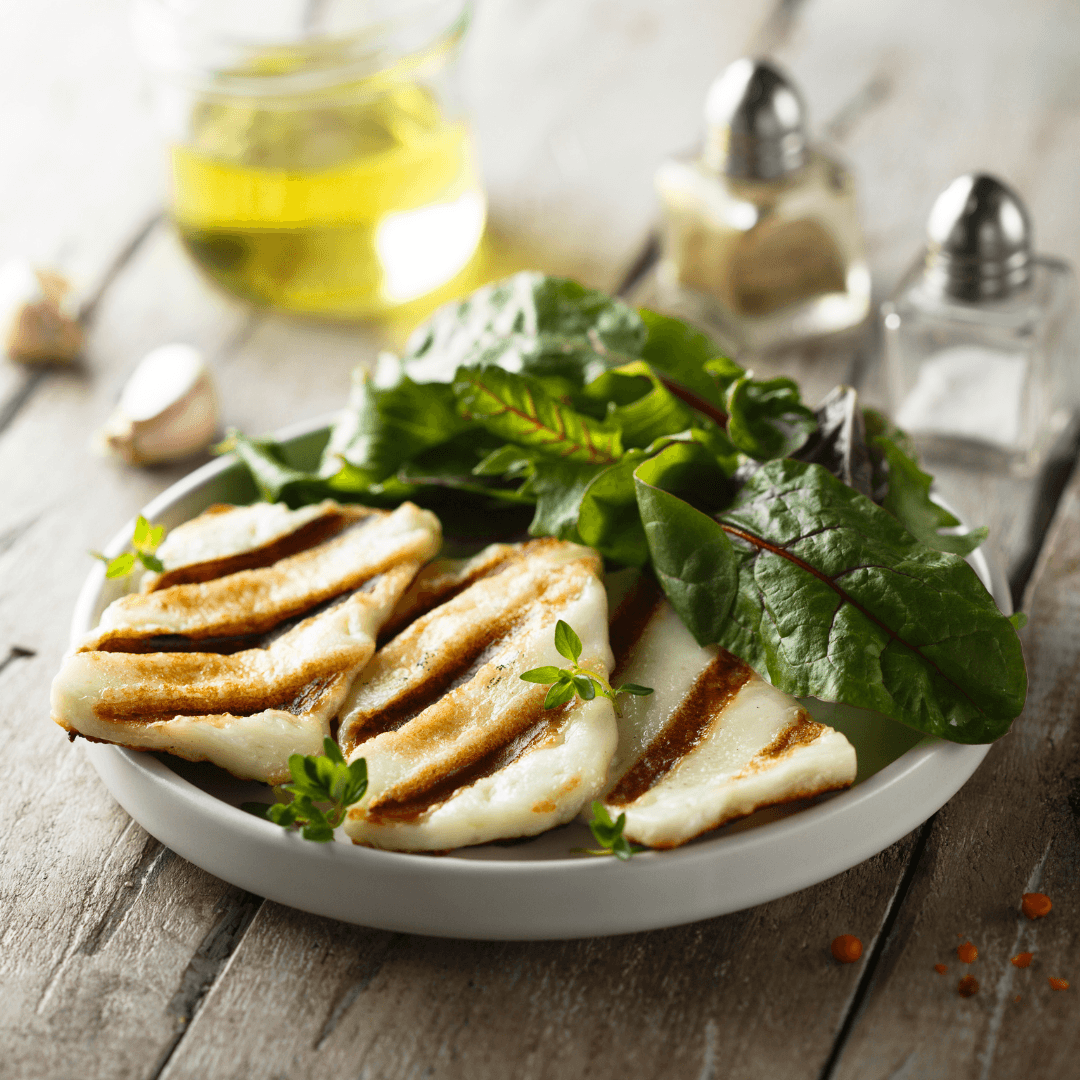
5. Queso Fresco
Queso Fresco, a beloved cheese in Mexican cuisine, enchants taste buds with its mild and fresh flavour and contributes a delightful creaminess to various dishes.
This soft, crumbly cheese made from cow's milk is a staple in Mexican cooking, making it widely accessible and popular among cheese enthusiasts.
One of its standout features for vegetarians is that it does not contain animal rennet, ensuring it aligns with their dietary preferences.
Cow milk is gently heated and acidified to create Queso Fresco, causing the proteins to coagulate and form soft curds. These curds are drained and pressed, resulting in a moist and crumbly texture that easily crumbles when touched.
Queso Fresco's mild and slightly tangy taste enhances the flavours of various dishes without overpowering them, making it a versatile cheese for both sweet and savoury preparations.
It is commonly used as a topping for tacos, enchiladas, and salads, adding a touch of creaminess and a subtle milky note.
Queso Fresco is also perfect for crumbling over salsas or grilled vegetables, providing a delicate contrast of textures. Its versatility extends to desserts, which can be sprinkled over fruits or drizzled with honey for a satisfying treat.
As a traditional Mexican cheese, Queso Fresco's timeless appeal continues to charm palates worldwide, offering vegetarians a delightful and delectable option to explore the rich tapestry of Mexican flavours.
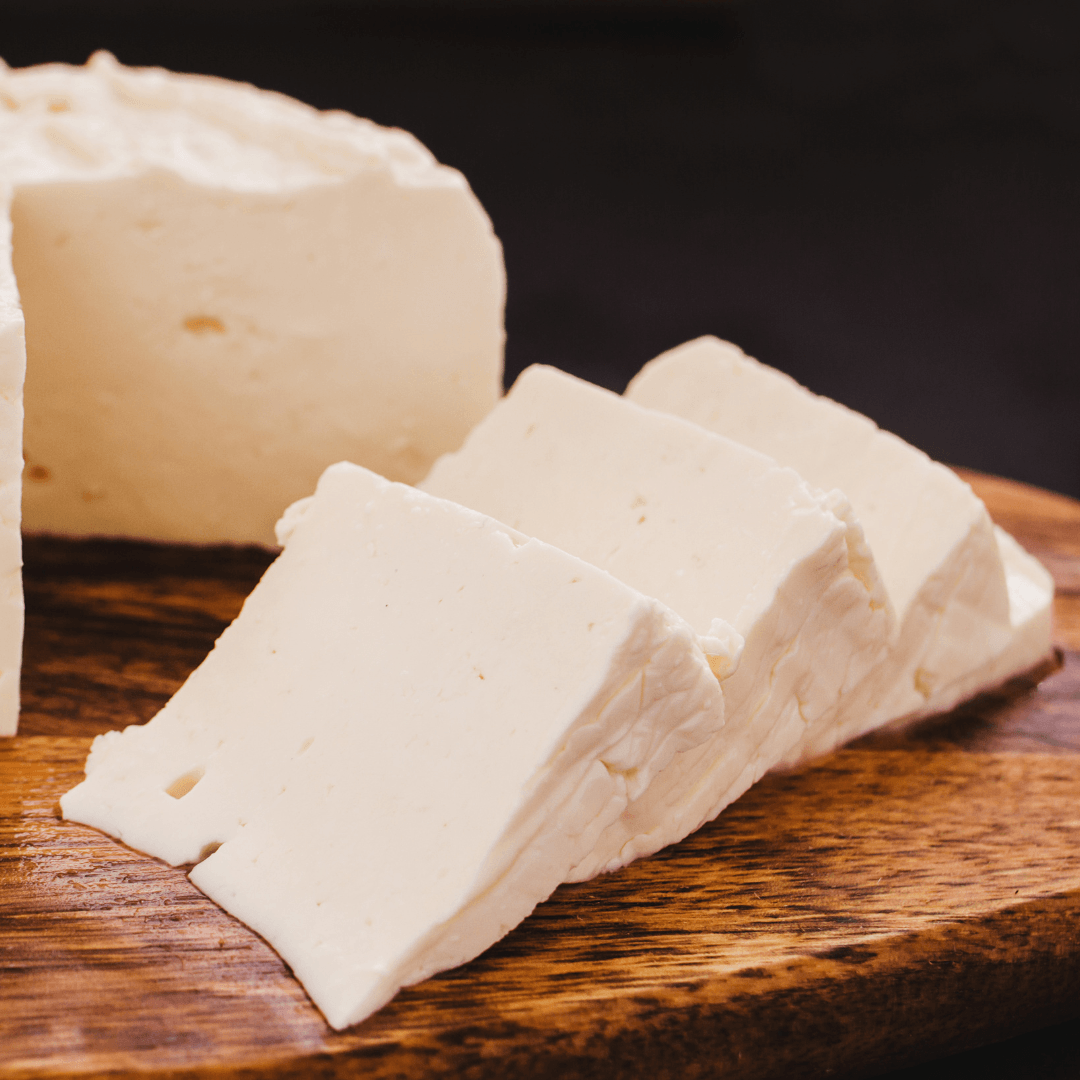
6. Gorgonzola
Gorgonzola, a renowned Italian blue cheese, entices cheese enthusiasts with its rich, piquant flavour profile. This distinctive cheese is crafted from cow's milk and is characterized by its characteristic blue veining, which develops during aging.
Traditionally, Gorgonzola is made with animal rennet, derived from the stomach lining of young animals. This raises concerns for vegetarians.
However, there is good news for those following a meat-free diet. Many cheese producers now offer vegetarian-friendly versions of Gorgonzola that use microbial or vegetable-based rennet instead of traditional animal rennet.
This adaptation ensures that vegetarians can indulge in the savoury and tangy delights of Gorgonzola without compromising their dietary principles.
During the cheese-making process, penicillium mould is introduced into the curds, leading to the distinctive blue-green marbling and adding an exquisite depth of flavour.
The result is a creamy, crumbly texture, punctuated by complex, earthy and salty notes, creating a true gourmet experience.
Gorgonzola's versatility makes it an exceptional choice for cheese boards, salads, and pasta dishes, adding a flavour that enhances any culinary creation.
With its vegetarian-friendly variations, Gorgonzola remains a treasured favorite among cheese connoisseurs. It offers a delectable and inclusive option for those embracing a meatless lifestyle.
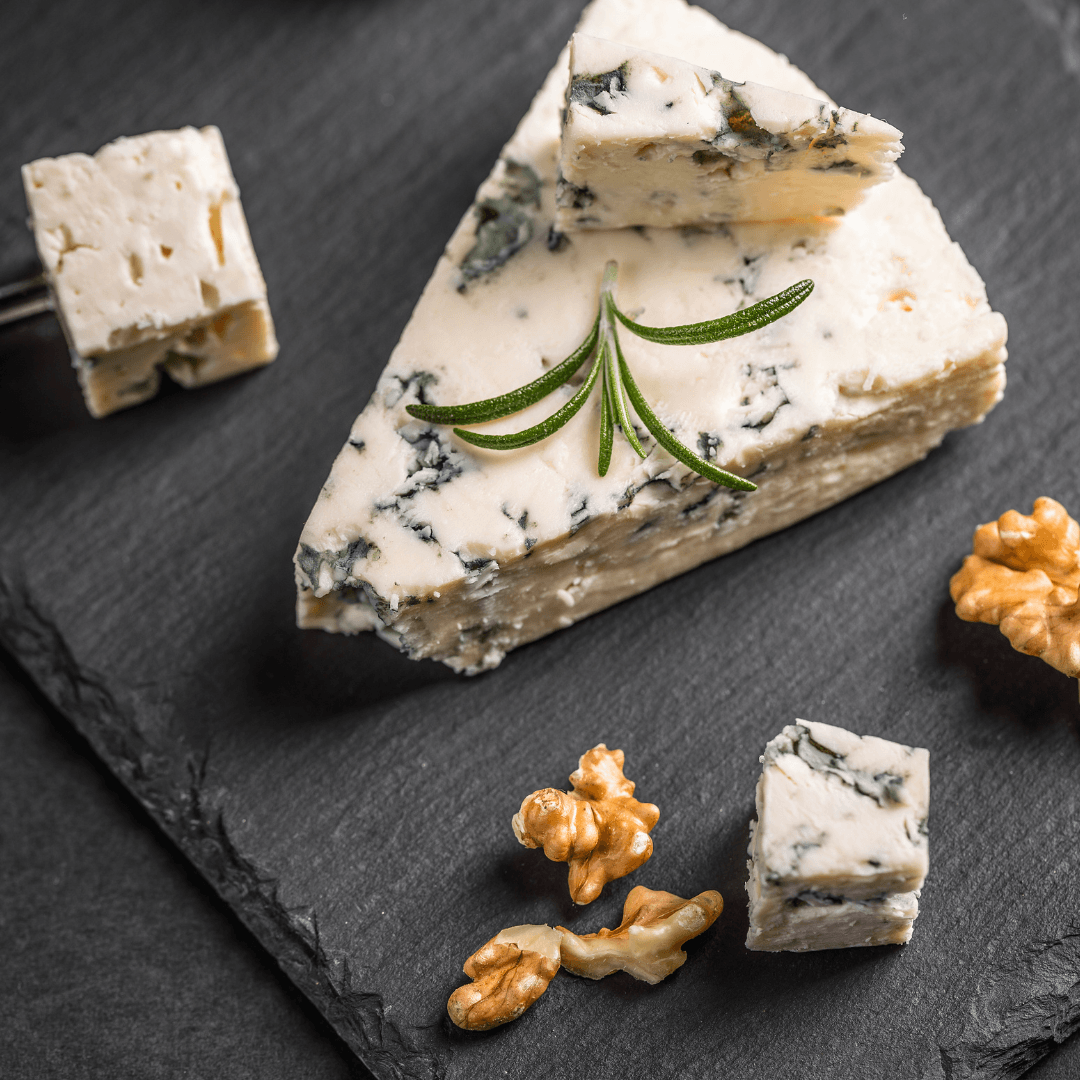
7. Camembert And Brie
Camembert and Brie, two of the world's most iconic and beloved soft cheeses, are delightful indulgences for enthusiasts.
Traditionally made from cow's milk, these cheeses are characterized by their lusciously creamy texture and rich, buttery flavour.
The good news for vegetarians is that many Camembert and Brie cheeses are produced with non-animal rennet, making them suitable for vegetarians.
While traditional versions may use animal rennet derived from the stomach lining of young animals, an increasing number of cheese producers now offer vegetarian-friendly alternatives, such as microbial or vegetable-based rennet.
To ensure the cheese is suitable for vegetarians, they must check the label and confirm the type of rennet used before purchasing.
The cheese-making process for Camembert and Brie involves a delicate balance of aging and ripening to achieve their distinctive flavours and soft textures. A white, bloomy rind develops on the surface during aging, encasing the smooth and creamy interior.
The result is a sumptuous cheese with a complex flavour profile that ranges from mild and milky when young to robust and nutty as it matures.
Camembert and Brie are perfect accompaniments to crusty bread and fresh fruits. Their luxurious texture makes them ideal for spreading on crackers or pairing with wine.
As versatile cheeses suit various culinary applications, the vegetarian-friendly versions of Camembert and Brie continue to charm palates worldwide, offering a delectable and inclusive option for vegetarians to relish these classic delicacies.

8. Gruyère
Gruyère, a beloved Swiss cheese, is captivating with its nutty, savoury flavour profile. While traditionally made from cow's milk, Gruyère is available in various production methods suitable for vegetarians.
Some Gruyère cheeses, particularly those produced in Switzerland, are crafted without animal rennet, making them suitable for those following a meat-free diet.
Gruyère's renowned flavour and versatility make it an essential ingredient in fondue, gratins, and soups and a delectable addition to cheese boards and sandwiches.
The cheese-making process involves curdling milk using rennet. Still, in vegetarian-friendly versions, cheese producers use microbial or vegetable-based rennet as an alternative to traditional animal rennet.
As with any cheese purchase, vegetarians must check the label to confirm the type of rennet used, ensuring they select a Gruyère that aligns with their dietary preferences.
With its characteristic nutty and slightly sweet taste, Gruyère strikes a perfect balance of flavours that appeals to cheese connoisseurs and casual enthusiasts alike.
The cheese's smooth and firm texture melts beautifully when heated, making it an excellent choice for creating creamy sauces or achieving the perfect cheese pull-in dishes.
Additionally, Gruyère's ability to complement a variety of ingredients, from fruits and nuts to cured meats and vegetables, adds to its culinary versatility.
Whether grated over French onion soup, layered in a Croque Monsieur sandwich, or enjoyed on its own, the vegetarian-friendly versions of Gruyère continue to delight taste buds worldwide, offering vegetarians a delightful option to savour this iconic and flavourful cheese.

9. Emmental
Emmental, renowned for its iconic holey appearance and distinctive nutty taste, is a beloved Swiss cheese similar to Gruyère.
Good news for vegetarians: Certain Emmental cheeses are crafted without animal rennet, making them a safe and suitable option for those following a meat-free diet.
Like Gruyère, Emmental is traditionally made from cow's milk. Its cheese-making process typically involves curdling the milk using rennet.
However, in vegetarian-friendly versions, cheese producers opt for microbial or vegetable-based rennet instead of traditional animal rennet.
Using non-animal rennet ensures that the cheese aligns with vegetarians' dietary preferences, allowing them to indulge in Emmental's classic flavour and unique holey texture without compromising their ethical choices.
Emmental's pleasant nutty taste and its semi-firm and slightly elastic texture make it an excellent cheese for melting, grating, and slicing.
It is essential in many classic dishes, such as Swiss fondue and gratins, whose exceptional melting properties create a luscious and creamy experience.
The distinctive holes of the cheese, known as “eyes,” add to its visual appeal, making it an eye-catching addition to any cheese board or sandwich.
Emmental's versatility extends beyond the kitchen. It pairs beautifully with fruits, bread, and wines, enhancing the dining experience with rich and complex flavours.
Whether enjoyed in its natural state or as a melting component in various culinary creations, vegetarian-friendly Emmental continues to charm palates worldwide, offering a delightful option for vegetarians to savour this iconic, flavourful Swiss cheese.
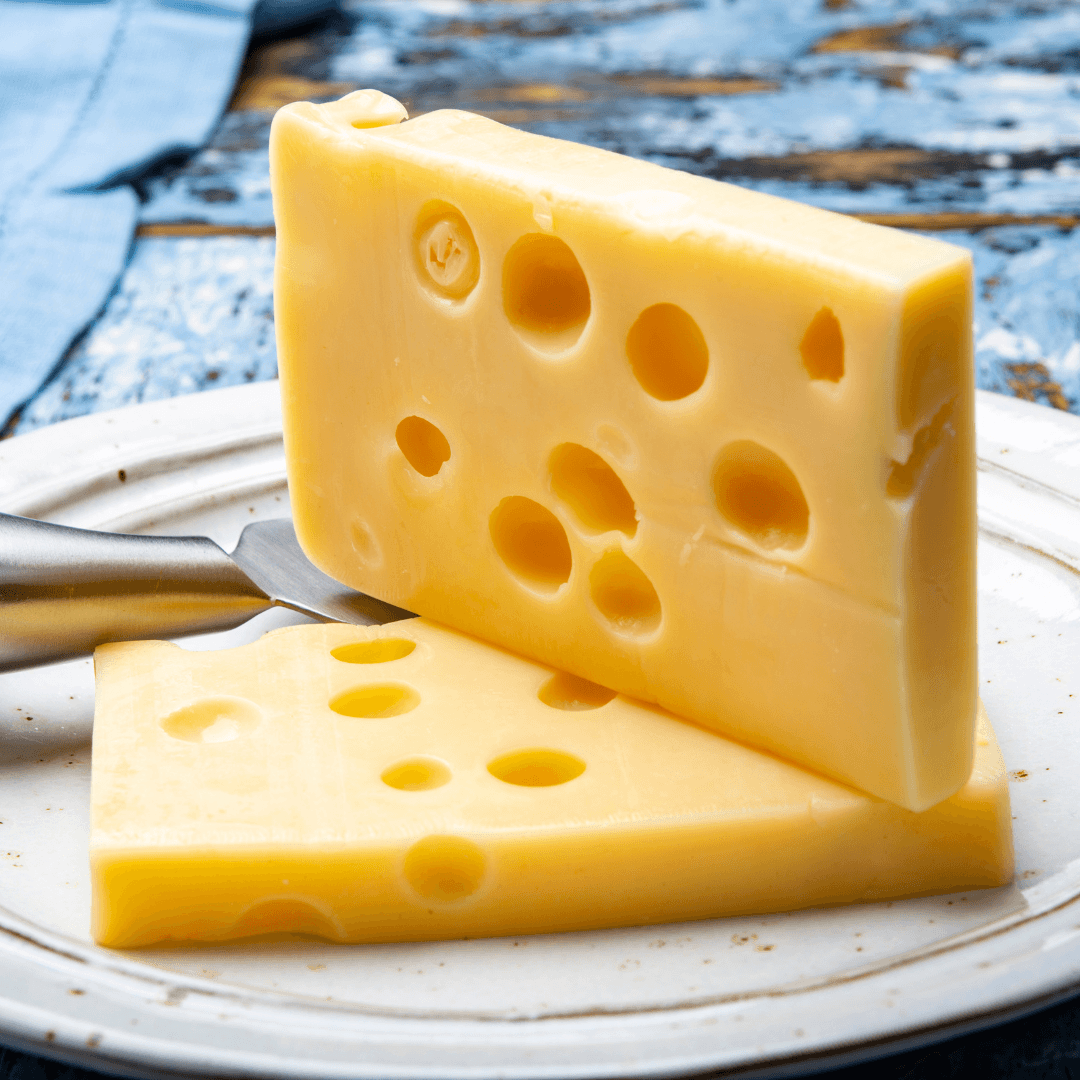
Conclusion
In conclusion, vegetarians can enjoy a diverse and delightful selection of cheese. From common varieties like
- Cheddar
- Mozzarella
- Swiss
- Gouda
- Colby
- Monterey Jack
to fresh cheese like
Numerous options are available that do not contain animal rennet and align with vegetarian dietary preferences. Vegetarians can indulge in a variety of flavours, textures, and culinary possibilities with this selection of cheeses.
Whether used as toppings, fillings, or standalone delights, these vegetarian-friendly cheeses enhance the dining experience and bring joy to cheese enthusiasts who embrace a meat-free lifestyle.
The availability of such diverse choices reflects the ever-growing demand for ethical and sustainable food options, making it easier for vegetarians to savour the many pleasures of cheese while staying true to their dietary principles.
I trust you enjoyed this article on the What Cheese Can Vegetarians Eat. Please stay tuned for more plant-based recipes, vegan travel tips, and lifestyle inspiration.
Take care!
— JeannetteZ 🌿
💬 Your Opinion Is Important To Me
Do you have thoughts, ideas, or questions? I’d love to hear from you. Please leave your comments below, or email me directly at Jeannette@LivingTheVeganLifestyle.org.
📚 More Vegan Lifestyle Reads
🌱 My #1 Recommendation for Online Success
Sharing my passion for vegan living — from food to fashion — has been such a rewarding journey.
If you’ve ever dreamed of building your own ethical lifestyle brand or blog, this is the best place to start.
🌟 See How Vegan Bloggers Build Online Income — Try WA Free (No Credit Card Needed)
Disclosure
This post may contain affiliate links. As an Amazon Associate and participant in other affiliate programs, I earn from qualifying purchases at no extra cost to you. Please read my full affiliate disclosure.

